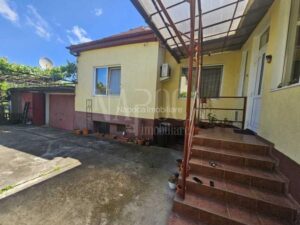Living in the city: Reasons and Perks
Proximity to work is the main reason why 54% of respondents choose to live in the urban environment. Access to medical facilities is essential for 49% of participants, while shopping facilities attract 44% of them. 43% of them value access to leisure facilities such as parks or restaurants. Educational opportunities are important for 42%, followed by well-developed public transport, which was chosen by 39% of respondents. Also, career opportunities appeal to 37% of respondents, and access to infrastructure and advanced technology, including high-speed internet, is valued by 36% of residents.
Other reasons chosen by respondents include: proximity to friends and family living in the city (35% of respondents), diverse housing options (32%) and access to sports or beauty services (25%).
Asked if they would move to the countryside, 35% of respondents said they would not want to make that change. However, 21% of respondents would like to move within the next year, and 7% within the next 2-5 years. In addition, 20% of participants intend to move, but have not yet determined an exact time for this change, and 17% say they are undecided about this aspect. The main reason why many would choose to move to the countryside is clean air, mentioned by 70% of respondents. Almost as many, 69%, are attracted by the tranquility that rural life offers. The possibility of having a garden or own land is a significant reason for 57% of participants, while 55% value proximity to nature and reduced traffic (46%).
Most (39%) consider retirement to be the ideal time to move to the countryside. About 27% would prefer to make this change in mid-career, between the ages of 30 and 50. 13% plan to move after the children leave home, and 7% want to take this step after starting a family. 6% see the start of their career, between the ages of 20 and 30, as the right time, while 3% would opt to move during their studies. Other periods were mentioned by 5% of the participants.
Living in the countryside: Reasons and Perks
Rural residents choose to live there for various reasons, the most common being peace, mentioned by 54% of respondents. Also, other important factors are: clean air (46%), the possibility of having a garden or own land (42%) and proximity to nature (41%). Healthier living, outdoor activities and lack of heavy traffic were mentioned by 39% of participants. Other significant reasons include: more living space (35% of respondents), lower living costs (30%), access to local and organic food (22%), and the opportunity to raise livestock (20%).
Asked if they would move from the countryside to the city, 39% said they planned to move within a year, and 6% in the next 2-5 years. However, 30% of residents say they would not move to the urban environment, while 14% are still undecided about this change, and 11% want to move, but do not know exactly when. The reasons why rural residents would choose to move to the urban environment are varied. Proximity to the workplace is the most important reason, mentioned by 45% of respondents. Educational opportunities are a significant factor for 38% of residents, while access to medical facilities is important for 33% of them. Also, 31% of respondents are attracted by access to leisure facilities, and 27% of residents appreciate the shopping facilities available in the urban environment.
At the same time, 49% of rural residents would be willing to commute daily to the urban area for work or studies. However, 24% of respondents said they would not be willing to make the effort. On the other hand, 27% of participants said they could commute daily, but this would depend on the length of the trip.
In terms of available budgets, those looking for a home in an urban environment, regardless of whether they currently live in an urban or rural area, are willing to spend between 50,000 and 100,000 euros (46% of respondents), less than 50,000 euros (23% ) or over 100,000 euros (23%). 8% of them have not yet decided on their final budget. At the same time, those looking for a home in the countryside tend to allocate smaller budgets: 38% have budgets under 50,000 euros, 32% between 50,000 and 100,000 euros and only 20% over 100,000 euros. However, 10% of respondents are undecided about their available budget.






















